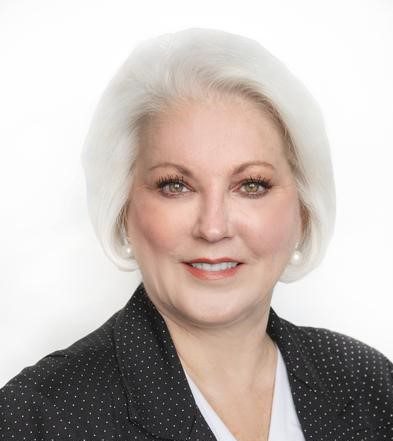The landscape of veterinary practice is definitely changing, with corporate buyers investing heavily – and this isn’t a brand new trend. In fact, DVM 360 offers up these examples from 2007:
- Summit Partners, a private equity and venture capital firm, invested $128 million in National Veterinary Associates (NVA); at that point, NVA owned the most freestanding veterinary hospitals in the United States: 99 of them in 29 states.
- VCA Antech, Inc. bought Healthy Pet Corp. and its 44 hospitals for $152.9 million, bringing their holdings to 450+ clinics in the country.
By 2016, approximately ten percent of practices are corporately owned.
Some people, upon hearing these stories, have rung the death knell for single-doctor practices. DVM 360, in the 2007 article, begged to differ, pointing out that VCA Antech – after more than 20 years of being in business – still only owned approximately 450 hospitals out of the country’s 31,000-plus practices.
So, is it possible for you to continue to maintain your own practice, and even compete with the corporate giants? Definitely. Although the percentage of corporately-owned practices has increased, in 2016 there are still 90 percent that are NOT owned by corporations.
The bigger question, really, is how to compete. Before we share strategies, here are reasons why veterinary practices are being seen as attractive investments, and why practice owners sometimes decide to sell to corporations.
Behind-the-Scenes of Corporate Decisions
Reasons that investors like veterinary practices include:
- Veterinarians get paid at time of service, unlike human medicine, where doctors need to wait for insurance reimbursement.
- Malpractice insurance costs are significantly lower than in human medicine and emotional damage payments are still much lower.
- The veterinary industry has grown steadily for more than 40 years, even during five recessions.
Lest this seems like a slam dunk for corporate buyouts, consider this: investors need to buy approximately 50 hospitals before they benefit from consolidated infrastructure. So, even if they were to buy one hospital a month, it would still take more than four years to reach that tipping point.
Selling Your Practice to a Corporate Buyer
Some practice owners, of course, willingly sell to corporate buyers. Advantages of selling include:
- Being offered a good price: if a veterinarian sees an excellent way to maximize profit – and corporate investors often offer top dollar – then it may make sense to sell.
- Speed of transaction: whereas an associate buy-in can take several years, corporate investors can close a deal much more quickly.
- Reducing the challenges of management: if a veterinarian just wants to practice medicine and dislikes business aspects, selling can make good sense.
- Having necessary capital to upgrade facilities and equipment
- Receiving the benefits of collective wisdom
Other potential reasons for selling range from the increasing numbers of baby boomers who are ready to retire without an associate ready to buy to young veterinarians with plenty of student loan debt who don’t want to go even further in debt by buying a practice.
How to Compete
If you don’t want to sell your practice, there are numerous ways you can bolster the strength of your practice to compete with larger practices. At a high level, the answer is to conduct assessments that ensure you’re reducing expenses and maximizing revenue whenever possible. Remember that, although streamlining costs makes sense, your ability to reduce expenses is finite, whereas increasing revenue does not have a ceiling.
Also, review what corporately owned practices do and implement similar procedures at your practice, whenever it makes sense. Here are multiple strategies to consider.
Products and Services
First make sure you’re offering the products and services your community needs. Do you find yourself being asked for a particular service that you don’t offer and are consistently needing to refer potential clients to competitors? If so, should you consider overhauling what you offer?
Is there an under-filled niche service in your community? If so, how feasible is it for your practice to fill that niche? Possibilities include rehabilitation medicine, radiology, ambulatory services, alternative therapies such as acupuncture and much more.
Pricing
What about your pricing? What are similar practices charging in your area? Unless you offer higher-end services where clients see and appreciate the differentiators, charging more than competitors may cause you to lose business. You don’t want to undercharge, though, because that equals lost revenue and profits, and a discouraging bottom line.
Vendors and Bulk Purchasing
Review your vendors. How “hard” have you negotiated your arrangements? Are you getting the best value possible? Are there early pay options that would provide you with a discount? If not, consider price comparing with other companies that offer similar products and services.
When possible, are you buying in bulk? The Veterinary Cooperative was formed to build purchasing power for independent veterinary hospitals. Members of the cooperative can purchase name brands at a discount because the cooperative negotiates with pharmaceutical companies, equipment manufacturers and more to obtain price breaks available to corporate practices. There are no minimum purchase requirements and the cooperative also issues dividend checks to members.
Personnel
Take a look at your staff. Do they work efficiently? Is each person doing the job that best fits his or her abilities? Does each person treat clients with respect, causing them to want to come back – and to recommend your practice to their friends and family? Does your staff recommend products that you sell? What performance-based incentive pay can you offer your team when they serve your current clients exceptionally well? For them to help get new clients for your practice? When they come up with an excellent expense reduction or revenue enhancing idea?
Processes
How efficient are your processes? Consider conducting time studies where you identify bottlenecks that are reducing efficiencies and costing your practice money.
Promotion
How do you promote your practice? Is it effective? If so, how can you capitalize on this? If not, are you targeting the right audience? Using the right media? Are your current clients evangelizing for your practice, encouraging others to choose you? If not, why not? How can you partner with local adoption groups and other worthy charities to highlight your practice to your community?
Education
How well are you educating your clients about the importance of regular wellness checks? How much are you empowering your practice team to provide this education to clients? DMV 360 offers literally hundreds of free handouts to give to clients.









